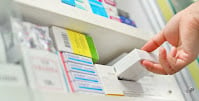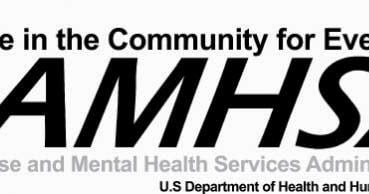Naltrexone May Reduce Binge Drinking in Sexual and Gender Minority Men

Naltrexone may significantly reduce binge drinking among sexual and gender minority men (men who have sex with men) with mild or moderate alcohol use disorder, according to a study in AJP in Advance.
“Expanding naltrexone treatment access to these individuals can help address the public health consequences associated with binge drinking, especially among communities with high binge-drinking prevalence rates, such as [sexual and gender minority men],” wrote Glenn-Milo Santos, Ph.D., M.P.H., of the University of California, San Francisco, and colleagues.
The 12-week study involved 120 sexual and gender minority men (one transgender male and 119 cisgender males) who reported at least one binge-drinking episode (five or more drinks on a single occasion) per week in the past three months, but who did not meet DSM-IV criteria for alcohol dependence. The participants received a supply of either 50 mg oral naltrexone pills or matching placebo pills and were asked to take one pill whenever they craved alcohol and/or they anticipated they might drink heavily. All participants were asked to attend weekly sessions to report on drinking behaviors and receive medication management counseling; at periodic visits, the investigators also collected urine and/or blood spot samples to measure the alcohol biomarkers ethyl glucuronide and phosphatidylethanol.
Overall, 111 participants completed the study. On average, participants took about 31 doses of the study medication over 12 weeks; the results were similar between the treatment groups, the authors reported.
After 12 weeks, the sexual and gender minority men who received naltrexone reported 26% fewer binge-drinking days, 17% fewer weeks with any binge drinking, and 31% fewer drinks per month compared with the placebo group. The effects were sustained six months after treatment, they noted.
When comparing the groups overall, there was no significance difference in the alcohol biomarker levels. Among participants who took medication on average at least 2.5 times a week, those who took naltrexone had lower levels of the alcohol metabolite phosphatidylethanol.
“These findings suggest that while there were no differences in alcohol abstinence between groups, those who took naltrexone more frequently likely had reductions in alcohol consumption,” Santos and colleagues wrote.
They continued, “[T]his study supports the use of a targeted dosing approach for naltrexone in [sexual and gender minority men] who are interested in reducing their heavy alcohol consumption on an event-driven, as-needed basis.”
To read more on this topic, see the Psychiatric News article “Can Ketamine Curb Excess Drinking?”
(Image: iStock/MJ_Prototype)
Don't miss out! To learn about newly posted articles in Psychiatric News, please sign up here.






